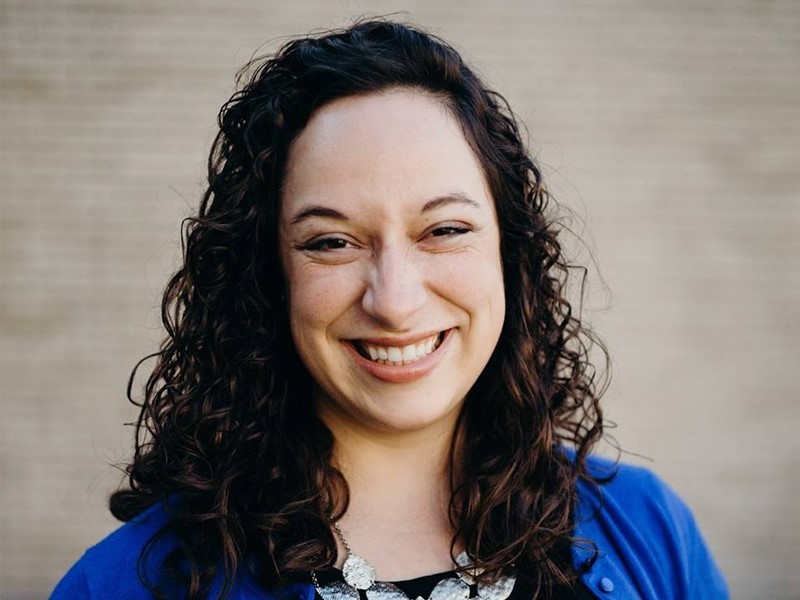When I was a fifth grader, my friend opened my laptop and introduced me to pornography. At the time, I didn’t know what pornography was, but I did know that it was something new and exciting. Years would go by before I rediscovered porn.
In college, after experiencing date rape (my first time having intercourse), I had many questions about sex. My curiosity led me to my reliable friend Google. As I began typing in my questions about sex, I was intrigued. “So this is what sex is supposed to look like.” I truly believed that…
Porn became my sex education. It taught me that sex is never messy, that women have to look a certain way to be loved, and that manipulation is okay. But neither the sex I experienced as rape, nor the sex I was watching on the screen, accurately displayed God’s purpose and design for sex.
If Christians fail to create a safe place for young adults to ask questions about sex, they will more likely turn to internet pornography.
According to a recent study, 25 percent of young adults ages 18-24 years old in the U.S. say that porn is their most helpful source of information about how to have sex.1 This is likely an underestimated percentage because of the shame associated with using pornography. When young people turn to porn for sex education, single or married, they begin to believe that the sex they experience in real life will be like the sex they see in pornography. In the survey, porn was the most commonly identified source for sex education. It rated higher than family, a significant other, and media.
The study, conducted by a non-Christian group, came to impactful conclusions. They explain, “The bad news is that young adults are misunderstanding what porn is there for. Most free, online pornography is there for entertainment and to make money for the creators. It isn’t there to teach you what you are supposed to do when you are having sex.” Even the secular world understands that pornography should not be our source for sex education!
Here are three things I wish I hadn’t learned from pornography:
Porn taught me that sex is self-focused.
In pornography, the focus is all about how to get the most pleasure for oneself. Whether through masturbation or focusing on orgasming quickly, the focus is never on serving the other person. In God’s design for sexuality, sex is mutual (and even better) when you focus on pleasing and serving your spouse.
Paul talked about surrendering your body to your spouse in the marriage bed in 1 Corinthians 7:3-4. He said, “The husband should fulfill his marital duty to his wife, and likewise the wife to her husband. The wife does not have authority over her own body but yields it to her husband. In the same way, the husband does not have authority over his own body but yields it to his wife.” This does not mean you have to give your body to your spouse whenever they want, but rather that our bodies are gifts to one another in marriage. (To learn more about this idea, read Are You Entitled to (Good) Sex in Marriage?)
Loving and serving your spouse (above your own desires) in the bedroom is one way you display your marriage covenant through sexual intimacy.
Porn taught me that sex would always be amazing.
Sex portrayed on a screen is nothing like sex in real life. Sadly, when young adults look at porn as their sex education, they will be let down when married sex does not always result in explosive orgasms. Real sex requires communication with your partner as you figure out how to please one another and allow time for arousal.
Watching porn trains your body to be unable to respond to your spouse’s touch and can be a detriment to enjoying sex in marriage.
Porn taught me that it’s normal for sex to feel abusive.
Covenant Eyes, an online filter software, states that 88% of scenes in porn films contain acts of physical aggression, and 49% of scenes contain verbal aggression. When young adults see abuse in porn, they are more likely to think aggression is normal and play out what they’ve seen in real life.
Sometimes couples say that they watch porn to learn how to “spice things up.” Porn and erotica actually do the exact opposite. Things may “spice up” at first, but they will eventually erode the trust and communication needed for sexual intimacy and a loving sex life. (Want to learn some healthy ways to spice up your love life?)
The men and women who make porn are also negatively impacted. Porn performers are often high on alcohol or drugs and some are actually victims of sexual exploitation. Covenant Eyes shares that 79% of porn performers have used marijuana, and 50% have used ecstasy. It is normal for the women to be high or drunk when performing, and have eating disorders.
Let’s Talk About It
As Christians, we must stop allowing shame to keep us from asking for help. We need to create safe places for men and women, single or married, to ask questions about sex. We must be a place where women (especially) can confess to struggling with porn, and find help, healing, and encouragement. In order to help men and women reclaim their sexuality, we must begin talking about God’s greater design. Porn is a terrible teacher, but God’s Word has answers to every question—even questions about your sex life. And His Word brings freedom, healing, and purpose to our sexuality.
(Presione aquí para leer en español).
1 https://link.springer.com/article/10.1007/s10508-020-01877-7
Photo by Caleb George on Unsplash



